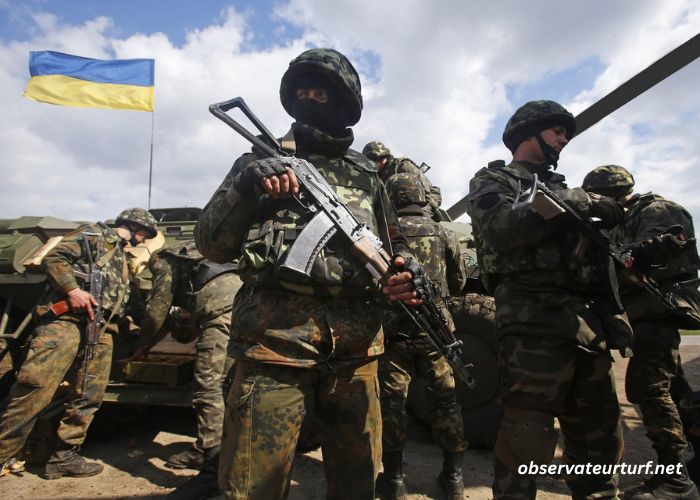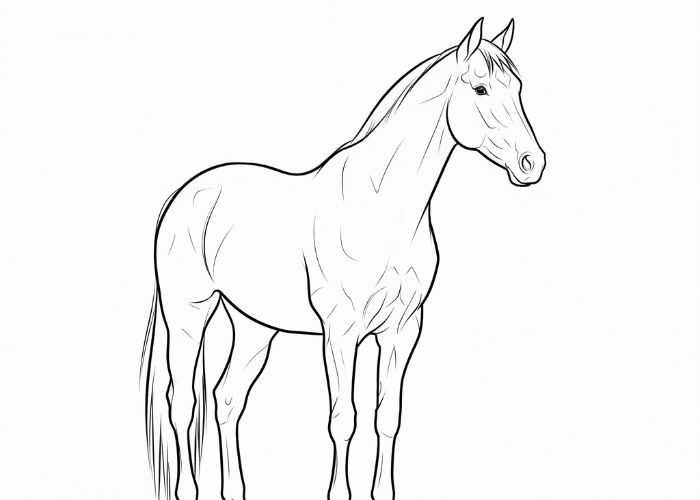The Guerre en Ukraine has been one of the most significant and devastating conflicts in recent history. This war, which began in 2014 and escalated in 2022, has caused massive disruption in both Ukraine and the international community.
The conflict began when Russia annexed Crimea, and tensions have only escalated with Russia’s continued military actions. This war has led to significant loss of life, displacement, and a major reconfiguration of international alliances. Understanding the Guerre en Ukraine requires an analysis of its causes, the players involved, the impacts on global geopolitics, and the ongoing humanitarian crises.
What Are The Main Causes Of The Guerre En Ukraine?
The Guerre en Ukraine stems from a complex combination of political, ethnic, and historical factors. At its core, the conflict is a result of Ukraine’s shift towards the West and away from Russian influence. After the fall of the Soviet Union, Ukraine’s aspirations to join the European Union and NATO were seen as a threat by Russia, which views Ukraine as part of its historical sphere of influence.
Tensions came to a head in 2014 with the annexation of Crimea by Russia, which was followed by Russia’s support for separatist movements in Eastern Ukraine. This escalation marked the beginning of the Guerre en Ukraine. The annexation of Crimea, which was widely condemned by the international community, set the stage for a wider confrontation between Russia and Ukraine, bringing the matter to global attention.
Another key cause of the Guerre en Ukraine is the longstanding ethnic divisions in Ukraine, particularly in the eastern regions where a large Russian-speaking population resides. Russia has exploited these divisions to justify its involvement in Ukraine, citing the need to protect ethnic Russians living in Ukraine from what it claims to be persecution. This narrative, however, is widely disputed by international observers.
The economic and political instability within Ukraine also played a role in the outbreak of conflict. Ukraine’s struggle with corruption, poor governance, and its difficult economic situation created a ripe environment for foreign intervention, with both Russia and Western nations seeking to influence the country’s future.
How Has The Guerre En Ukraine Impacted Global Geopolitics?
The Guerre en Ukraine has had far-reaching consequences on global geopolitics, especially in terms of international alliances and economic sanctions. Russia’s actions have strained its relations with the West, leading to sanctions from the United States, the European Union, and other countries. These sanctions have crippled Russia’s economy, isolating it from the global market in many ways.
NATO has become more active in response to the conflict, with increased support for Eastern European countries that fear Russia’s expansionist tendencies. The alliance has provided military aid to Ukraine and reinforced its presence in neighboring countries, leading to a shift in security dynamics across Europe.
The war has also highlighted the limitations of international organizations like the United Nations. Despite condemning Russia’s actions, the UN has been largely ineffective in stopping the violence, as Russia holds a veto power in the Security Council. This has led to questions about the relevance and efficacy of international bodies in managing modern conflicts.
Another important geopolitical consequence of the Guerre en Ukraine is the shifting balance of power between global superpowers. China has taken a more cautious approach, maintaining a relationship with Russia while also focusing on its growing influence in other regions. The war has therefore become not just a regional issue, but one with significant global ramifications.
What Are The Humanitarian Consequences Of The Guerre En Ukraine?
The Guerre en Ukraine has created one of the most severe humanitarian crises in Europe since World War II. Millions of Ukrainians have been displaced, with large numbers fleeing to neighboring countries like Poland, Slovakia, and Romania. The war has created a dire refugee situation, with many facing uncertain futures as they try to rebuild their lives in foreign lands.
Inside Ukraine, the impact has been even more devastating. Entire cities have been destroyed, particularly in the east of the country, where heavy artillery and airstrikes have left many people homeless and without basic necessities. Hospitals, schools, and infrastructure have been destroyed or severely damaged, making it difficult for civilians to access essential services.
The war has also led to a dire loss of life. Thousands of soldiers and civilians have been killed, and the toll continues to rise as the conflict shows no signs of ending soon. International organizations have raised concerns over war crimes and the targeting of civilians, particularly by Russian forces. The psychological and physical trauma on both soldiers and civilians is expected to last long after the conflict ends.
Humanitarian aid efforts are ongoing, with international organizations and governments sending supplies to support those affected by the war. However, the scale of the crisis has made aid distribution difficult, particularly in conflict zones, where access is often restricted. The ongoing Guerre en Ukraine continues to challenge the global community’s ability to respond effectively to large-scale humanitarian emergencies.
What Role Do International Sanctions Play In The Guerre En Ukraine?
International sanctions have played a crucial role in the geopolitical landscape of the Guerre en Ukraine. Western countries, including the United States and European Union, have imposed harsh economic sanctions on Russia in an attempt to pressure it into ceasing its aggression. These sanctions have targeted various sectors of Russia’s economy, including finance, energy, and defense.
The goal of these sanctions is to weaken Russia’s economic base and make it difficult for the country to fund its military operations in Ukraine. However, the effectiveness of these sanctions is debated. While they have certainly isolated Russia from the global economy, they have not yet forced the Kremlin to alter its course in Ukraine. In fact, Russia has adapted by seeking alternative markets and alliances, particularly with China and other nations willing to bypass sanctions.
One of the significant impacts of sanctions is the effect on ordinary Russians, who face rising inflation, reduced access to international goods, and declining living standards. The sanctions have hurt Russia’s economy, but they have also fueled nationalist sentiments, as the Russian government portrays the sanctions as an attack on the country’s sovereignty.
For Ukraine, international sanctions against Russia have been both a source of support and a point of contention. While they have bolstered Ukraine’s position diplomatically, they have also highlighted the challenges of achieving a quick resolution to the conflict, as Russia’s ability to withstand sanctions has demonstrated the country’s resilience.
What Is The Current Military Situation In The Guerre En Ukraine?
The military situation in the Guerre en Ukraine remains fluid and unpredictable. Russian forces initially made significant territorial gains in the early stages of the conflict, particularly in eastern Ukraine and Crimea. However, Ukrainian resistance has been fierce, with the Ukrainian military receiving substantial aid from Western nations, including advanced weaponry, training, and intelligence support.
In recent months, Ukrainian forces have managed to retake significant territories from Russian control, but the conflict remains at a stalemate in many regions. The fighting continues to be concentrated in eastern and southern Ukraine, with both sides suffering heavy casualties. The war has become a battle of attrition, with neither side able to decisively defeat the other.
The involvement of foreign military support has been a game-changer for Ukraine. NATO countries, particularly the United States, have provided Ukraine with advanced artillery, drones, and anti-tank missiles, significantly enhancing its ability to counter Russian advances. This has led to a protracted conflict, with no clear victory in sight.
Despite the challenges, Ukraine has shown remarkable resilience, and its military continues to engage in operations aimed at pushing back Russian forces. The military situation remains critical, as both sides prepare for further escalation and attempts to gain the upper hand.
Conclusion
The Guerre en Ukraine is a complex and ongoing conflict with profound implications for global security, humanitarian issues, and international relations. It has reshaped the geopolitical landscape, drawn international attention to Russia’s actions, and caused immeasurable suffering for the people of Ukraine. While the military situation remains fluid, the war has fundamentally altered the dynamics of Eastern Europe and the world at large.
The path to peace remains uncertain, but the international community must continue to work towards a resolution that addresses both the immediate humanitarian crisis and the long-term geopolitical challenges posed by this war.




